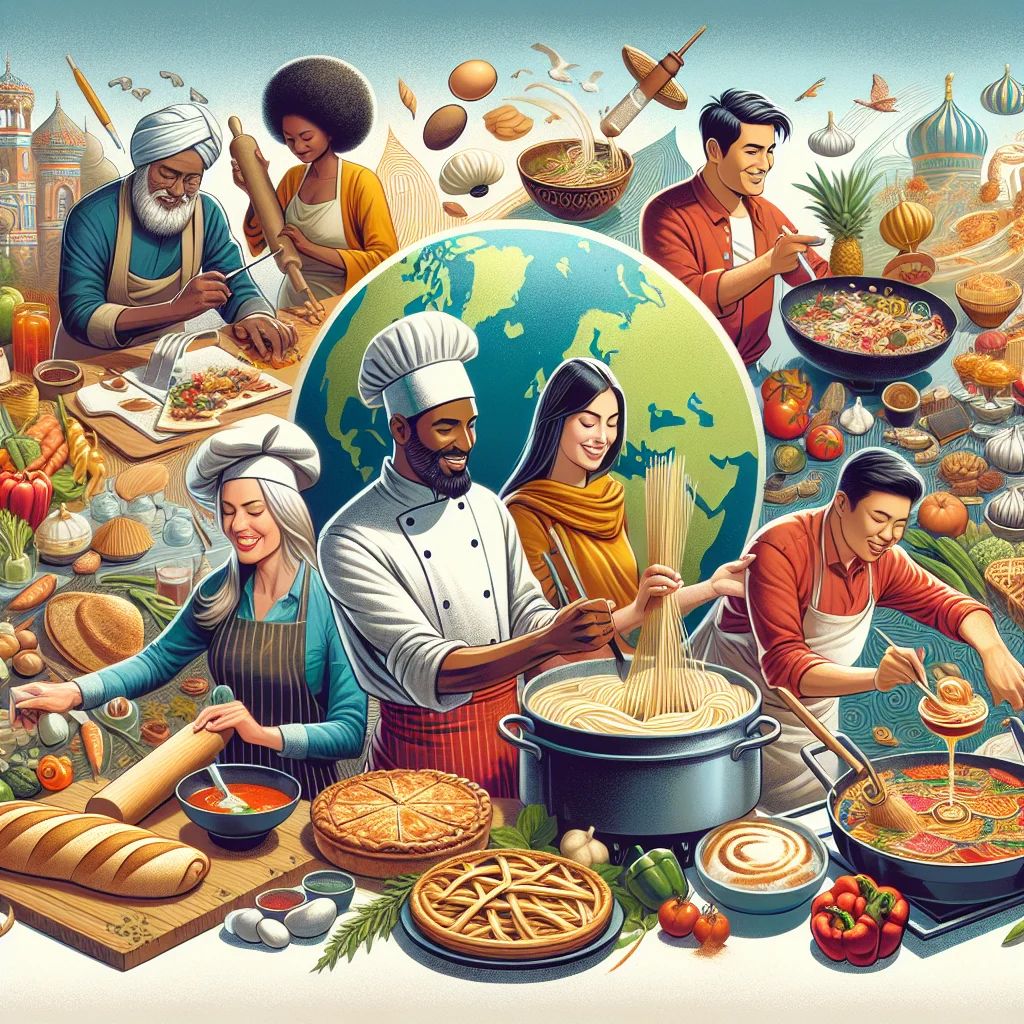Cultures in Motion: Adventure Through Global Culinary Traditions
May 15, 2025

Introduction
Embarking on a journey into the culinary traditions of different cultures provides a rich, immersive experience that goes beyond conventional travels. Food is not merely sustenance; it’s a vibrant reflection of the history, geography, and traditions of a region. In this article, we delve into exciting culinary adventures across various cultures that enhance adventure tourism and offer unforgettable insights.
Experiencing Culinary Traditions Through Local Markets
Visiting local markets is one of the most exhilarating ways to immerse yourself in a culture. Think of bustling bazaars in Marrakech or vibrant street markets in Bangkok where the air is thick with the aroma of spices, grilled delicacies, and simmering broths. Not only do these markets provide a feast for the senses, but they also offer insights into the daily lives of locals.
In Marrakech, the Djemaa el-Fna square comes alive at dusk with food stalls serving traditional dishes like tagine and couscous. Visitors can partake in cooking classes that take place right in the heart of the market, learning to prepare these classic Moroccan dishes using age-old techniques. Such experiences not only involve direct engagement with the local culture but also provide an opportunity to forge connections with friendly vendors eager to share their culinary stories.
Culinary Festivals: Celebrating Flavor and Culture
Culinary festivals offer a unique blend of culture, art, and gastronomy, and participating in them can be a thrilling experience. The Salon International de l’Agriculture in Paris, for instance, is not just about stunning displays of produce; it also features competitions, tastings, and demonstrations by renowned chefs. Visitors can sample everything from artisanal cheeses to various gourmet products, enjoying engaging activities such as cooking workshops and wine tastings.
In the United States, the famous Taste of Chicago showcases the city's diverse culinary landscape, where adventurous eaters can try everything from Ethiopian injera to deep-dish pizza. These festivals not only satisfy your palate but also allow you to appreciate local heritage through food while interacting with chefs and food lovers from around the world.
Interactive Cooking Lessons
One of the best ways to appreciate a culture is to learn how to cook its traditional dishes. From pasta-making classes in Italy's countryside to sushi workshops in Japan, interactive cooking lessons offer participants hands-on experience that enhances cultural understanding. These classes often take place in picturesque settings, whether it's a rustic kitchen with a view of rolling hills or a sleek urban space equipped with modern amenities.
In Florence, for instance, a cooking class might begin with a market tour to select fresh ingredients, followed by crafting traditional sauces and pasta. Participants not only replicate cherished recipes but also gain insights into the significance of each dish nationwide. Such activities forge lasting memories while providing practical culinary skills that can be applied long after the travels end.
Street Food Adventures: A Portable Culture
Street food is often the most accessible way to engage with a culture's culinary practices. Whether it’s savoring a spicy taco al pastor from a roadside stand in Mexico City or enjoying a fragrant bowl of pho on the streets of Hanoi, street food emphasizes local ingredients and traditional cooking methods.
For the adventurous spirit, taking part in street food tours can be exhilarating. These guided experiences not only introduce participants to local favorites but also share stories about their origins and significance in the community. In cities like Bangkok, where street food thrives, an evening tour through the vibrant street scene can be a memorable culinary adventure filled with diverse flavors and experiences.
Culinary Heritage and Sustainability
Modern travelers increasingly value sustainability and authenticity, leading to a greater appreciation of traditional culinary practices. Regions like the Italian region of Emilia-Romagna are now championing their culinary heritage by promoting local ingredients and traditional production methods. This 'slow food' movement emphasizes the importance of local sourcing, environmental sustainability, and cultural preservation.
Engaging in such initiatives allows travelers to not only enjoy authentic culinary experiences but also contribute to the sustainability of local food systems. Participating in farm dinners or foraging tours showcases how traditional practices blend with adventure tourism, offering enriching and meaningful experiences that deepen connections with the locations you visit.
Conclusion
Culinary adventures are an integral part of cultural exploration, enhancing our understanding of a destination's heritage through taste. From bustling markets and lively festivals to interactive cooking classes and street food excursions, these culinary experiences not only satiate our appetites but also nourish our souls. Embracing these cultural engagements invites travelers to partake in the stories, traditions, and practices that shape their experiences, highlighting the deep relationship between food and culture in the realm of adventure tourism.
Back